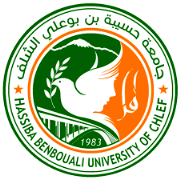Ideology and Translation
DOI:
https://doi.org/10.70204/jlt.v2i1.239Parole chiave:
Ideology, translation, - sociology, cultureAbstract
A significant problem with the study of ‘ideology’ in any discipline is its definition and scope. First used in 1796 by Count Destutt de Tracy to refer to a new rationalist ‘science of ideas’, from the nineteenth century onwards ‘ideology’, from the French idéologie, came to acquire a negative Marxian sense of illusion nor false consciousness (the misguided way of thinking that characterizes others, such as the ruling classes, for example), and this negative sense has had a significant impact on the way it was studied (Williams 1983: 153–4). Although more contemporary uses of the term in the humanities cover neutral phenomenological as well as negative senses, the word ‘ideology’ remains problematic, as emphasized by Woolard (1998: 8), who states that ‘arguably, even the most doggedly neutral social-scientific uses are tinged with disapprobation, the truly neutral stance more often encoded by the choice of other labels such as culture, worldview, belief, mentalité, and so on’
Pubblicato
Versioni
- 2024-03-19 (2)
- 2024-03-19 (1)












